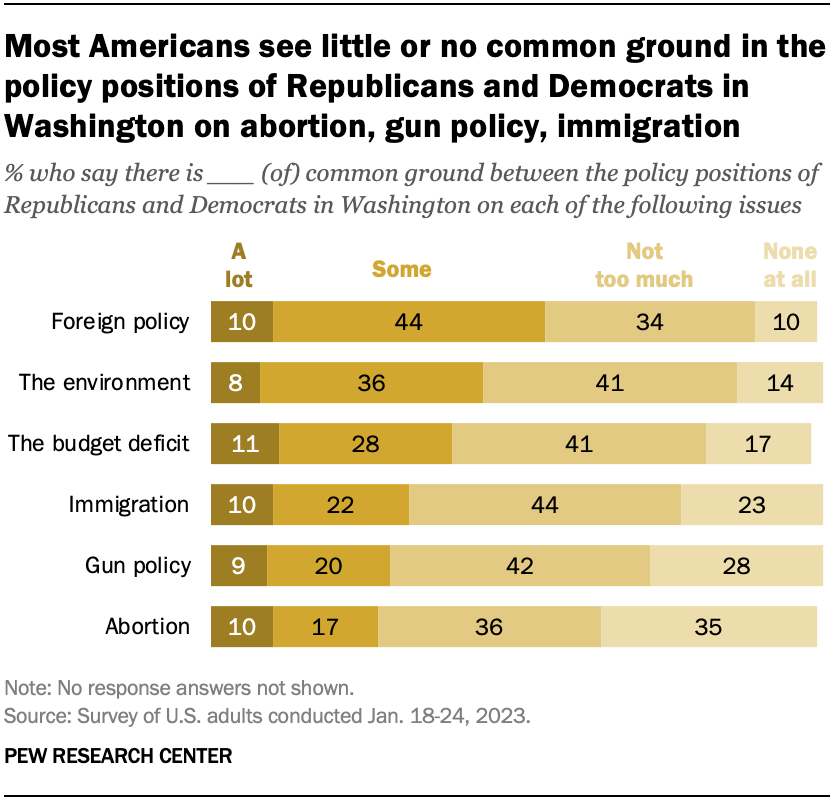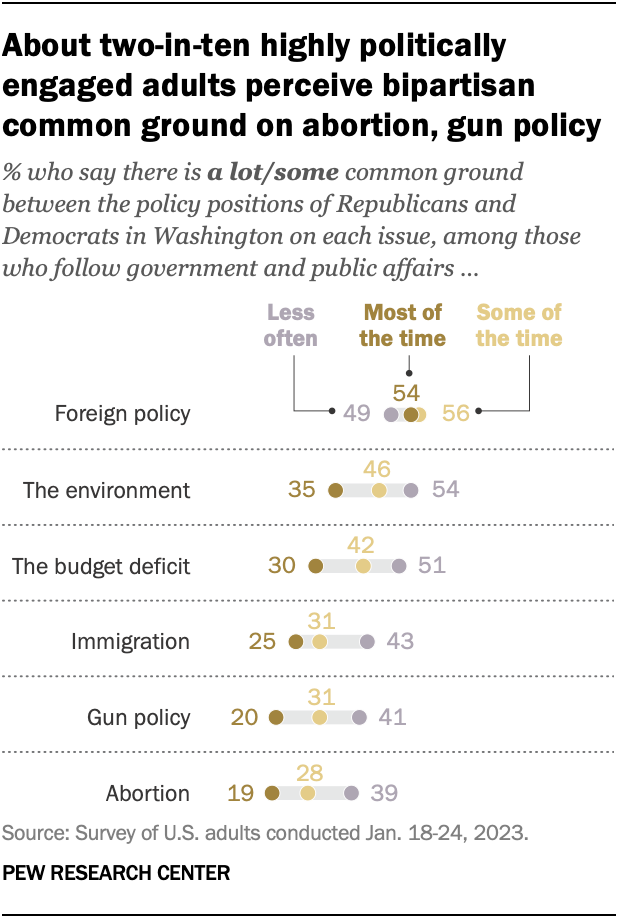Most Americans view the Republican and Democratic parties as very different from each other. Yet the public does perceive some common ground between partisans in Washington on foreign policy, even as it sees much less bipartisan agreement on issues including abortion, gun policy and immigration.

A slim majority of Americans say there is a lot (10%) or some (44%) common ground between the foreign policy positions of Republicans and Democrats in Washington, while 34% say there is not too much. One-in-ten say there is no common ground between the two parties on this issue.
By contrast, only about a quarter of Americans (27%) say there is at least some common ground between Republicans and Democrats on abortion, while 36% say there is not too much overlap on this issue and 35% say there is no common ground at all.
Relatively small shares of the public see bipartisan common ground on the issues of gun policy (29% say there is at least some common ground) and immigration (32%). Larger shares – though still minorities of the public – see at least some common ground on the budget deficit (39%) and the environment (44%), according to a Pew Research Center survey conducted Jan. 18-24, 2023, among 5,152 U.S. adults.
Pew Research Center conducted this study to understand how Americans view the policy positions of Republicans and Democrats in Washington on several issues. For this analysis, we surveyed 5,152 U.S. adults from Jan. 18-24, 2023. Everyone who took part in this survey is a member of the Center’s American Trends Panel (ATP), an online survey panel that is recruited through national, random sampling of residential addresses. This way nearly all U.S. adults have a chance of selection. The survey is weighted to be representative of the U.S. adult population by gender, race, ethnicity, partisan affiliation, education and other categories. Read more about the ATP’s methodology.
Here are the questions used for this analysis, along with responses, and its methodology.

Public perceptions about the degree of common ground in Washington on these issues are largely unchanged since the fall of 2016, when the Center last asked this question.
Partisan differences are generally modest when it comes to Americans’ perceptions of common ground between the parties on the six issue areas asked about in the survey.
However, Democrats and Democratic-leaning independents are more likely than Republicans and Republican leaners to say there is at least some common ground between the parties in Washington on foreign policy (62% vs. 47%). Democrats are also somewhat more likely than Republicans to perceive some common ground on the budget deficit (44% vs. 35%, respectively) and on immigration (35% vs. 26%).
Americans who pay more attention to government and public affairs are less likely to see common ground between political parties

Americans who follow government most of the time are generally less likely than other Americans to perceive common ground between Republicans and Democrats in Washington. This is the case on five of the six issue areas asked about in the survey.
For instance, three-in-ten Americans who follow government most of the time say there is at least some common ground between Republicans and Democrats in Washington on the budget deficit. Larger shares of Americans who say they follow politics some of the time (42%) or less often (51%) hold this same view.
The exception to this pattern is foreign policy: Perceptions of common ground on this issue do not substantially differ by Americans’ political attentiveness.
Note: Here are the questions used for this analysis, along with responses, and its methodology.



